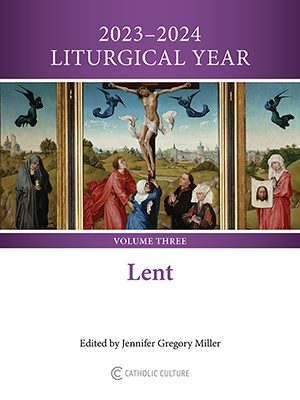Silence, Subversion, and Trust
By Diogenes ( articles ) | Jun 30, 2003
In an intentionally provocative column for National Review Online, Anglican John Derbyshire wonders aloud whether the Church will finish her days as "a gay dating service":
Organized Christianity began as a religion for women and slaves. It looks set fair to end, at least in the Western world, as a religion for homosexuals.
Derbyshire's own analysis of the problem is disappointingly, well, Anglican. Though aware of the danger to Christian doctrine posed by ministers pathologically hostile to that doctrine, his chief misgivings center on the threat to "tradition" in the broader sense: proselytizing gays will put an end to the comfortable, decorous, family-friendly ambience of churchmanship. Yet he rightly calls attention to the human dynamics, noting the paradox that, as their proportion increases within an institution, homosexuals become not less but more obsessed with their homosexuality. He propounds a sociological law à propos:
Any organization that admits frank and open homosexuals into its higher levels will sooner or later abandon its original purpose and give itself over to propagating and celebrating the homosexualist ethos, and to excluding heterosexuals and denigrating heterosexuality.
To what extent is this a problem within Roman Catholicism? Well, to date no sitting bishop is a "frank and open homosexual." Some will conclude from this that we have no Derbyshire Problem at all. On the other hand, recent years have seen seven U.S. bishops forced out because of homosexual activity, while an eighth has died of AIDS. How many U.S. bishops chastised these men prior to their exposure? Zero. How many U.S. bishops had earlier given voice to a general concern about homosexual activity on the part of their brethren? Zero. How many bishops today admit that some of their brethren engage in homosexual activity? Zero. The upshot is that the silence (or inattention) of the bishops is meaningless, and from this a man can draw any conclusion he likes.
One thing is radiantly clear: they're not going to level with us. We will never read an article or see a press conference in which a bishop says, "Look, we figure we've got between five and fifteen sexually active gays in our number and probably another fifty celibate but seriously neurotic homosexuals. We're trying among ourselves to come up with the best way to help these men serve the Church and save their souls and keep the system intact in the process. None or few of the problem bishops tell us the full truth about themselves. It's a difficult, often bitter, conversation. We need your prayers."
It's not going to happen. Fine. But that makes the goal of "restoring trust" all the more elusive. As laity and lower clergy we don't need to know everything, perhaps, but we need to know something. Specifically, we need to know that what happens behind the wall of silence happens in the service of Christ. In default of a demonstrably concrete example the situation will continue to deteriorate.
Imagine that, next November, 270 mitred men enter the U.S. Bishops Conference meeting and only 260 emerge. Would we get a full and candid explanation of what went on? Of course not. But if the bishops could show that something was more important than saving face, the faithful would have a reason to believe that that something was saving souls.
All comments are moderated. To lighten our editing burden, only current donors are allowed to Sound Off. If you are a current donor, log in to see the comment form; otherwise please support our work, and Sound Off!








